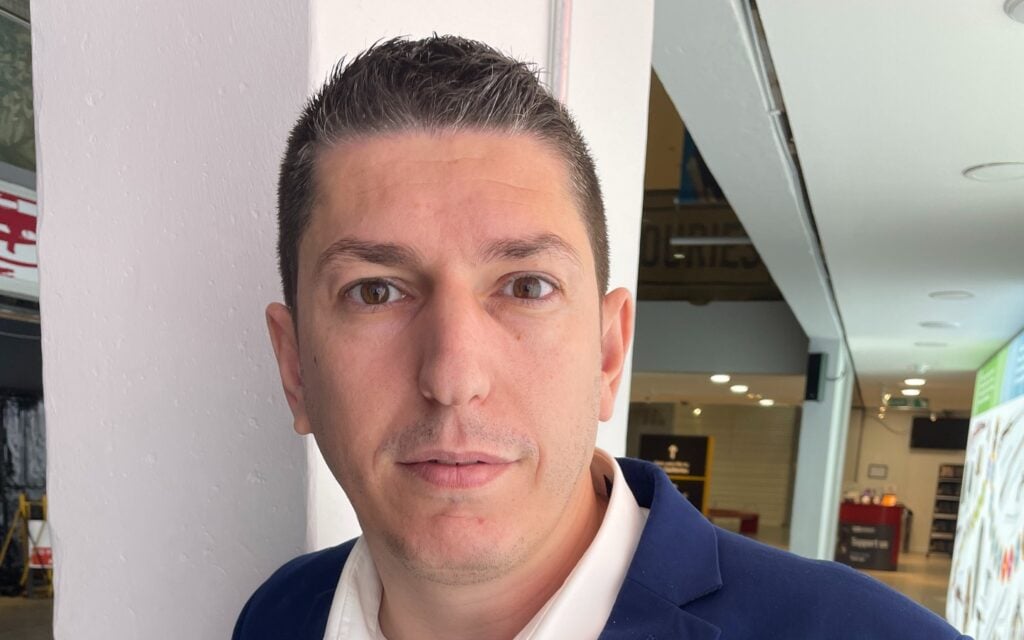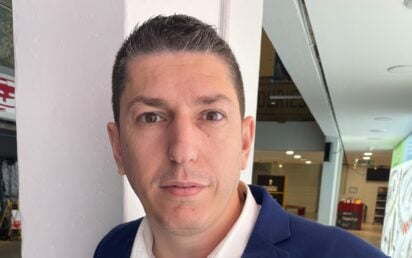Ardian Mula’s story reads more like a Hollywood movie than a real-life story.
Having grown up in a tiny village in Albania without the internet and mobile phones he’s now running a £35 million turnover business that is taking on tech giants Just Eat and Deliveroo.
If that wasn’t remarkable enough, his business – Foodhub – has just finished fourth in the 2021 Northern Tech Awards’ list of 100 fast-growing tech companies – and they’ve bootstrapped the lot.
Foodhub is an online takeaway delivery service that acts as an intermediary between takeaways and customers but doesn’t charge commission like its big rivals. It’s a winning recipe.
Founded in Stoke in 2017 by Mula and his friend Mohammed Shakil, Foodhub today employs more than 1,000 people, has 25,000 businesses using its platform and recently expanded into Australia, New Zealand and the US.
It’s a far cry from Mula’s childhood in Albania as he’d never seen a computer until he came to the UK.
“Where I came from there was no internet,” he recalls to TechBlast. “When I left, my village didn’t have mobiles. There was only one landline. Technology to me was a TV!”
The teenage Mula settled in Stoke and despite going to college to learn English he still speaks with a strong accent from his childhood.
It was while at school that his eyes were opened to the potential of computers.
“It was like a whole new world for me,” he says. “I could visit anywhere in the world and learn anything I wanted without having to go to the library. I could learn something new just by typing it in Google.”
He went to Staffordshire University but dropped out as his passion for computers and writing code took off.
Mula began working on his business Touch2Success, which rebranded as Foodhub in 2017.
“The business was providing computer systems to takeaway and restaurants,” he says. “The technology was automating an industry that has traditionally used pen and paper.
“The problem we were trying to fix was takeaways were getting charged a lot in commission so we created a platform based on a fixed monthly fee rather than a commission.
“The other problem we were trying to fix is how do you get all these takeaways on the first page of Google? In the case of Stoke we have 300-400 takeaways and can’t get them on one page – so our solution was to create a platform and have them all listed on that.”
And so Foodhub was born. The company’s technology allows customers to input their postcode and order and pay for meals from a nearby restaurant without having to contact the venue directly.
Unlike giants like Deliveroo and Just Eat, there’s no commission – and 25,000 takeaway restaurants have joined the platform.
“I didn’t set out to get to 25,000 establishments when I launched the business,” admits Mula, now 34. “I just wanted a small business that would provide for me and my team – but it just grew.
“We got to the first 1,000, then 5,000, 10,000, 20,000 and so on. Now we’re at 25,000 with a presence in Australia, New Zealand and the US.
“Takeaways pay a fixed fee of £25 a week and for that they can take as many orders as they want on our platform, irrespective of their size.”
Today Foodhub employs more than 1,000 people, with around 200 in the UK, 800 in India and about 50 in Australia, New Zealand and the US.
Mula doesn’t lack ambition but I ask him how he can take on the giants Deliveroo and Just Eat.
“I still haven’t found the answer to that question,” he jokes. “I want them to underestimate me. I want to go under the radar until the time is right.”
His reply sparks another question from me. “How big can you become?” I ask.
“How big is your imagination?” is his reply.
Foodhub has grown massively during the pandemic but the need to raise investment seems inevitable if it’s going to truly take on the global tech giants.
There were reports earlier this year that it was looking to raise £100m to support further acquisitions overseas and continue to expand its global workforce.
Mula says: “Everything that we’ve done so far has been about building the platform. We will be taking VC money in order to grow. We want to be able to take this technology anywhere in the world.”


